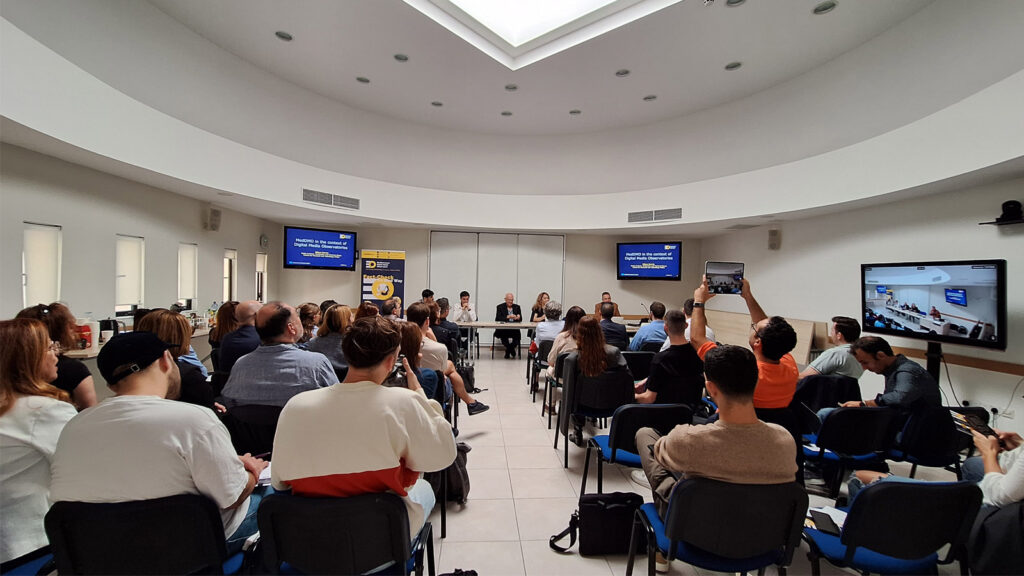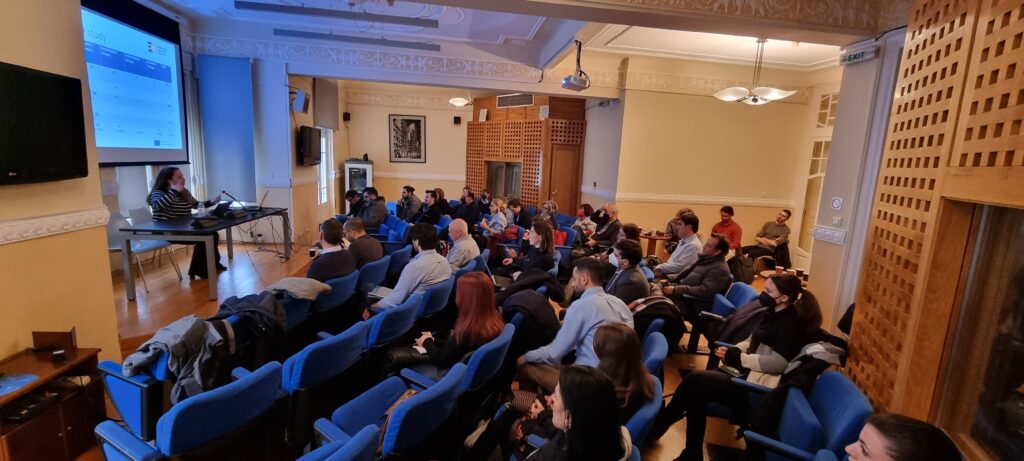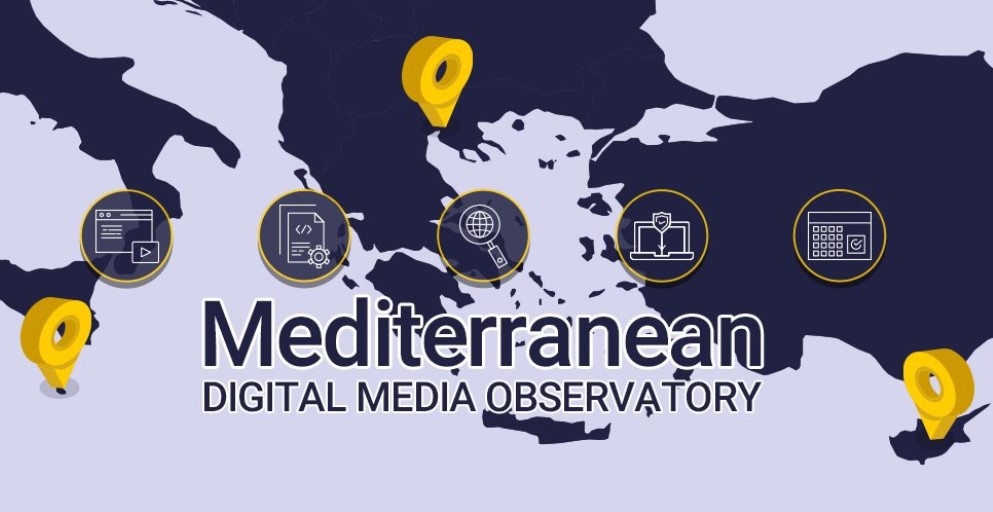30.10.2025
Media experts from around the Mediterranean held a public event at the University of Malta on Thursday (30th October) on the theme of fighting disinformation and empowering society.
This interactive event marked the start of the second round of the Mediterranean Digital Media Observatory (MedDMO), an EU-funded project bringing together journalists, media literacy experts and researchers in Malta, Greece and Cyprus, as well as from the international news agency, Agence France-Presse. The University of Malta’s Department of Media and Communications, one of MedDMO’s local partners, is hosting the consortium’s two-day plenary meeting between Thursday and Friday.
On Thursday, journalists, students, researchers, academics, activists, NGOs and others gathered to meet MedDMO’s international team at the University of Malta’s Faculty of Media and Knowledge Sciences.
The team presented snapshots of its work and processes – including fact-checking and disinformation investigation, media literacy training, and the monitoring of media pluralism in each country.
The presentations were followed by a lively interactive panel discussion on disinformation in Malta and beyond, with the participation of representatives from Times of Malta (MedDMO’s other local partner), the Malta Communications Authority and AFP, as well as interventions from the floor, which included comments by a representative of the European Commission and by the president of the Institute of Maltese Journalists.
Points discussed by the panel and the floor include the severity of coordinated trolling and online harassment of journalists in Malta – one academic cited the dehumanisation campaign targeted at Daphne Caruana Galizia as one of the worst examples of this – the need to target the young through innovative media methods, and the lack of proper media literacy education in schools.
“We need to adapt fact checking to be more attractive. We will try to do other formats, like video fact checks, to reach younger kids in schools even at the age of 8”, said Deputy Chief Editor for Europe at AFP, Joyce Sablit.
Nikos Sarris, Senior Researcher at CERTH and main coordinator of MedDMO pointed out that technology can always just do that much to come up with concrete findings for journalists.
“Tech people have been working for so many years to detect disinformation. But there is no magic bullet. No tool will tell you with 100% certainty if something is real. One problem is still that there is not enough explainability. How can a journalist be helped by a tool saying there is a 60% probability this is fake? Probably in no way”.
Herman Grech, editor-in-chief at the Times of Malta characterized the establishment of the paper’s fact checking desk in 2023 as one of the most important recent developments, strengthening the outlet’s degree of engagement.
“Sometimes Neville’s fact checks are the most read ones throughout a day. I believe in ‘unlearn, relearn and adapt’, that’s what I say to journalists, the most important thing is for young people to engage with us, speak to us. Media literacy is so important, we should go down to the basics and explain why people need to trust the media”.
MedDMO works to fight disinformation and promote a healthier information space – an effort in which we all play a role.
More about MedDMO:
Launched in 2023, the MedDMO project has just been renewed by the European Commission and will run for at least another three years. MedDMO is part of a much wider international effort as one of the 14 hubs under the European Digital Media Observatory (EDMO). In the past few years, it has been working to foster a healthier information space locally and beyond our shores through fact-checking activities, disinformation analysis, and media literacy campaigns and training. Local partners are Times of Malta and the University of Malta’s Department of Media and Communications.
Website: Home – MEDDMO





